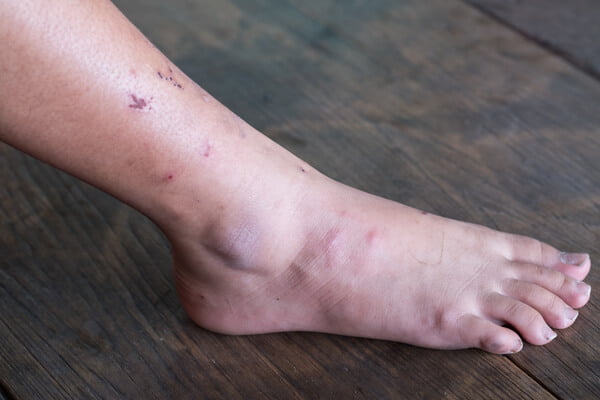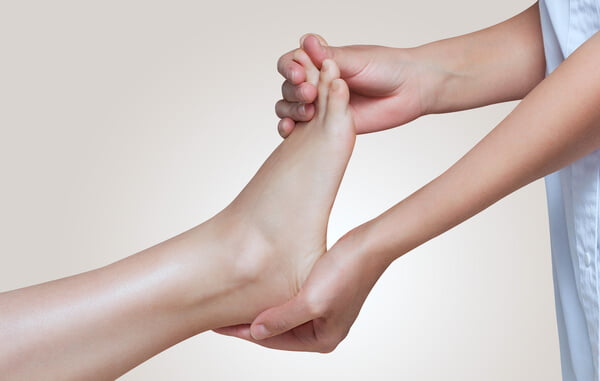Diabetic Foot Care
What is Diabetes?
Diabetes is a condition when there is too much glucose or sugar in the blood. Glucose is a main source of energy for daily activities, but when we cannot maintain a healthy level, short term and long-term effects can occur within the body. Insulin helps the body convert glucose into energy, however if you have diabetes, the body produces little to no insulin, causing the glucose to remain within the blood.
Types:
Type 1 Diabetes – the body does not produce any insulin. People with Type 1 Diabetes will need to take insulin replacements every day. Usually diagnosed in children and young adults, although it can occur at any age.
Type 2 Diabetes – low levels of insulin are produced, or the body does not use the insulin well. It is the most common type of diabetes and can be diagnosed at any age.

How can Diabetes affect my feet?
Diabetes can affect different areas throughout the body including your lower legs and feet.
Neuropathy:
Diabetes can cause nerve damage (neuropathy) within the feet. The nerves allow you to feel pain and temperature changes. Without adequate sensation within your feet, the likelihood of you feeling that your shoes are rubbing, causing a blister or wound or that there’s a stone in your shoes is decreased.
Peripheral Vascular Disease:
Diabetes can also affect the blood flow to your lower extremities. Blood vessels can become partly or fully blocked due to fatty deposits building within them. Without adequate blood supply, the healing phase of a cut or wound can be quite slow and can sometimes lead to amputation.

What is involved in diabetic foot care?
1. History
Our podiatrist will ask you questions about your past and current health status and if you have any issues with your lower leg and feet.
2. Blood flow assessment
Assessment of pulses within your feet
3. Nerve assessment
To check your ability to feel light pressure within your feet.
4. Nail and Skin check and treatment
Trimming and removal of any sharp nail edges and removal of hard skin and corns.
5. Footwear assessment
To ensure your footwear is providing adequate support and room for your feet.
6. Education
Our podiatrist will provide you with advice to take home to continue the care for your feet.
FAQs
What should I bring?
You should bring the current shoes you are wearing for work, sport and everyday activities. If you are finding a certain pair of shoes uncomfortable and haven’t been wearing them, bring these along too as they can help us determine the issue.
Where do I purchase shoes from?
We have several footwear stores for all shoes types we trust and recommend, we will provide you with their name and location.
How often should I replace my shoes?
This will depend on your activity and how often you use the shoes. If there are any obvious wear patterns that are causing imbalance through your feet and body then the shoes should be replaced.
We’re here to help!
We invite you to call us at Hampton Podiatry Foot Clinic on (03) 9521 0366 and one of our friendly team will gladly arrange an appointment.
Alternatively, you can book online by clicking the button below.
